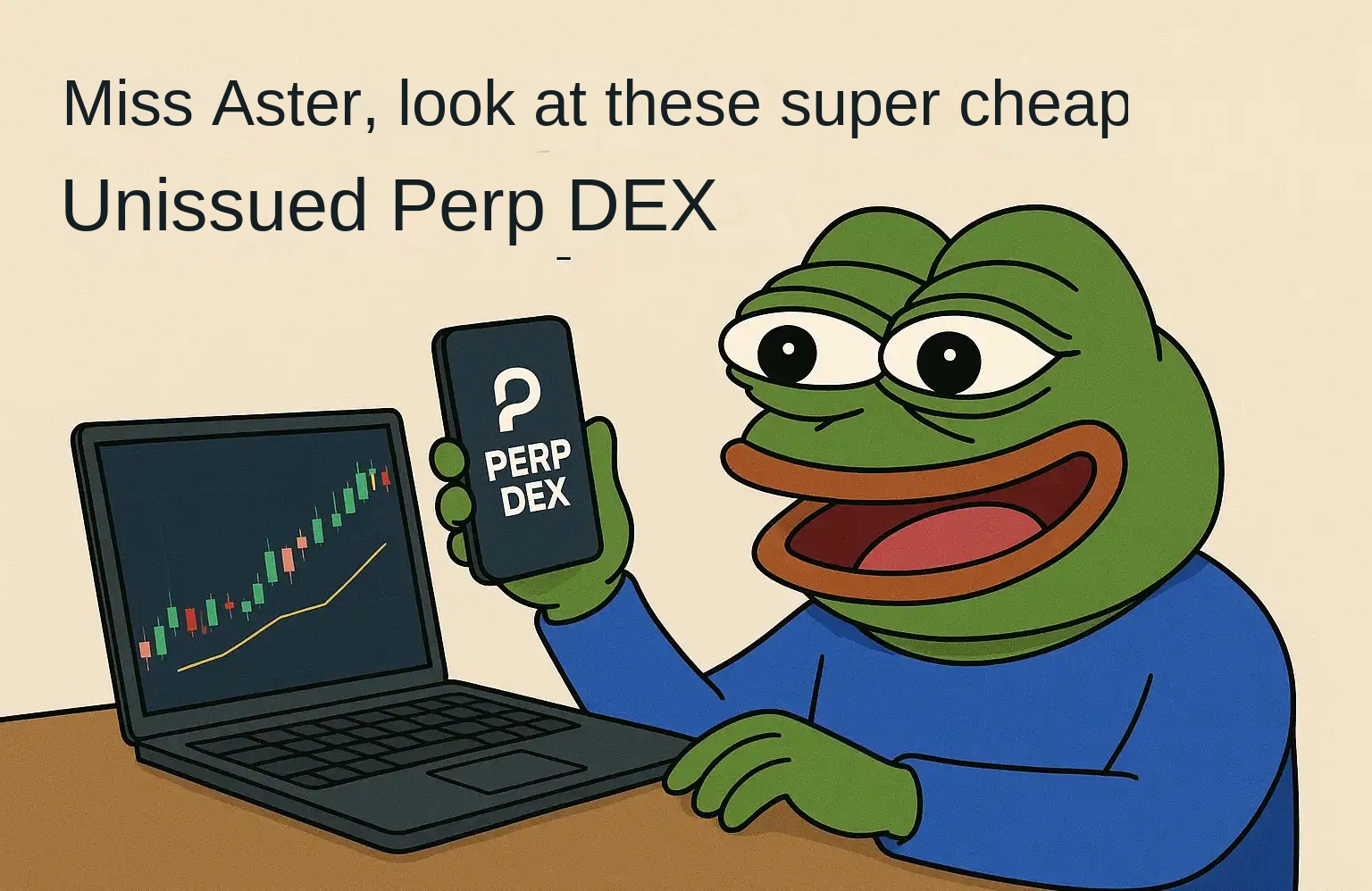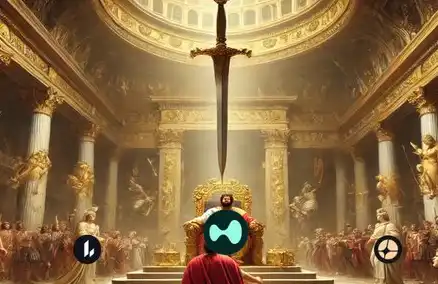How Solana and Stacks co-founded Zeus Network to reshape the boundaries of blockchain
Market demand and technological innovation are the driving forces behind the development of the blockchain industry. Bitcoin L2 has become popular to improve the transaction throughput and scalability of the Bitcoin network and reduce transaction fees. The popularity of modular blockchain is due to its better scalability, flexibility and convenience in building projects, which is achieved by dividing the consensus layer, execution layer, data availability layer and settlement layer of the blockchain to different chains.
Bitcoin L2 and modular blockchain solve the challenges faced by traditional blockchains in processing a large number of transactions to a certain extent, but there are other solutions.
Solana has previously attracted a large number of users with its high-speed transaction processing, low cost and scalability. If Solana's high speed and Bitcoin's security and high liquidity are combined, it may produce unprecedented synergy.
Zeus Network is now creating a native communication layer between Solana and Bitcoin. This represents a new vision of interoperability, through which the high performance of Solana and the widespread adoption of Bitcoin are combined to create a closer and more synergistic digital currency ecosystem.
Bitcoin and Solana native communication layer, not a cross-chain network
Zeus Network consists of Zeus nodes and Solana Virtual Machine (SVM).
Zeus nodes include dual-function registry services that allow peer-to-peer communication, signing, broadcasting, validator registration, and can run on-chain and off-chain. The Zeus communication mechanism enables nodes to exchange information, synchronize status, and execute transactions with each other without going through a centralized middleman, which helps to decentralize and operate efficiently.
When an individual user wants to become a Zeus validator, he needs to run a node and keep a private key for the signing function. In Zeus Network, the network verification process adopts a decentralized and permissionless group model, which means that anyone can become a validator without being restricted by a specific institution or organization. However, becoming a validator node requires staking SOL or LSD-SOL. Zeus encourages users to use LSD-SOL and participate in PoS staking to earn income.
SVM plays a key role in the functionality and performance of Zeus Network, providing peer-to-peer communication services and state-related program elements.

Image source: Zeus Network
Zeus consensus is the core of Zeus Network. In Zeus consensus, Bitcoin and Solana transactions are first serialized and then systematically stored in the management program, which provides a centralized starting point for validators to access and verify transactions. Validators in Zeus Consensus focus on verification work without participating in on-chain transactions. To further improve efficiency,
Zeus Consensus implements a threshold signature mechanism. In Bitcoin, this involves Taproot and Schnorr signatures, while in Solana, it is the Ed25519 signature algorithm. At the same time, signing is performed off-chain and the signature is broadcasted to Solana. Off-chain signature aggregation allows for improved broadcast efficiency of transactions without sacrificing security.
These features of Zeus Network make it go beyond the narrow concept of a cross-chain bridge network. It is not just a simple asset transfer platform, but a complex system that protects assets on each chain. Since liquidity providers on each chain do not receive liquidity from another chain, the assets provided on each chain are protected by their respective protocols.
Reshaping the Boundary of Blockchains
APOLLO is the first application developed based on Zeus Network, aiming to increase the liquidity of BTC in the Solana ecosystem. This innovative application allows the value of BTC to be smoothly transferred to the Solana network without relying on traditional bridge mechanisms. APOLLO operates based on Zeus consensus, which guarantees decentralized governance and operational security of the entire system.
APOLLO uses a sophisticated two-way anchoring mechanism to allow native BTC to be staked on the Bitcoin network and minted into zBTC on Solana at a ratio of 1:1. In order to ensure security and prevent depegging, APOLLO has designed a complex circulation control mechanism and hot and cold reserve management system. The circulation limit of zBTC is closely linked to the total value locked (TVL) of SOL and LSD-SOL in Zeus Network.
With the introduction of liquidity, APOLLO plans to launch money markets and automated market makers (AMMs), gradually developing into a DeFi infrastructure and liquidity hub connecting Bitcoin and Solana.
According to the project roadmap, APOLLO is expected to launch its native token and mainnet in the second quarter of 2024. APOLLO is not only a platform for Zeus Network's technology display, but also a test field for its ideas. Through APOLLO, it can be foreseen that Zeus Network may lead a new wave of cross-chain interoperability. zBTC will be able to be used in Solana native protocols such as Solend, marginfi, Kamino Finance, and participate in pledge lending. In addition, popular token standards such as BRC-20, ARC-20, and Runes can all be implemented through Zeus Network. Zeus Network will also support projects such as Swap, stablecoins, and wallets to further expand its cross-chain interoperability capabilities.
It is foreseeable that Zeus Network is reshaping the boundaries of the blockchain world with its revolutionary cross-chain technology.
ZEUS debuts on Jupiter LFG Launchpad
On March 7, the first Jupiter DAO vote began, and two projects will be selected as candidates for the LFG Launchpad, and the two projects will be allowed to issue their tokens on the platform. Users participating in the Jupiter LFG Launchpad will receive JUP token rewards and Launchpad fee allocations.
ZEUS has become one of the first projects on Jupiter LFG Launchpad, and token trading will officially begin on April 4. Zeus Network will issue airdropped ZEUS to 300,291 independent addresses, including 181,889 addresses that previously participated in the Jupiter LFG Launchpad vote, 114,772 zuPoint holder addresses, and 3,630 Dappie Gang NFT holder addresses. Users who vote in the Jupiter LFG Launchpad will also receive other benefits, including additional ZEUS token rewards.
According to official information, the total amount of Zeus Network's token ZEUS is 1 billion.
1. 40% of the tokens will be used to incentivize community members and promote the further development of the project;
2. The foundation reserves 20%, which will be used as a long-term strategic reserve to ensure that the project can maintain long-term operation;
3. 15% will be allocated to team members as rewards and incentives;
4. 10% will be allocated to early supporters;
5. 5% will be allocated to the advisory team;
6. 5% will be used for liquidity;
7. The remaining 5% will be used for Launchpad as funds for project launch.
Different types of holders will have different unlocking and issuance mechanisms. At the token TGE, the circulating tokens will be 167.5 million, accounting for 16.75% of the total.
The team is supported by Solana Co-founder and Stacks Co-founder
Justin Wang, the founder of Zeus Network, graduated from the University of British Columbia. He started a VPN business in Dubai in 2014, mainly targeting the Saudi market, and exited with $3.5 million in equity in 2016. He then founded "dAppio Lab" in 2020 and began to expand the Solana blockchain ecosystem.
Chief Architect Jim Ironaddicteddog is a blockchain professional with a diverse background who has contributed to multiple projects. Jim has made important contributions to the Solana Taiwan non-EVM community and served as a technical leader and project manager at dAppio Lab. He has also worked as a researcher at BSOS and Unitychain. During the Taipei Ethereum Meetup, Jim organized meetups, study groups, hosted meetings, and received recognition for his work from Vitalik.
Chief Scientist Dean is a professional developer from Australia with 7 years of experience in the Bitcoin blockchain field, and has won multiple hackathons and established multiple successful companies.
On March 9, the cross-chain communication network Zeus Network announced its angel investor lineup, including Solana co-founder Anatoly Yakovenko, Mechanism Capital co-founder Andrew Kang, and Stacks co-founder Muneeb Ali. The rest of the VC lineup will be announced in the future.
Zeus Network founder Justin Wang also said: "Zeus Network's good team culture allows us to realize unique technology. Through Zeus Network, we can lock in more than $1 trillion worth of Bitcoin in the market to achieve unprecedented cross-chain liquidity and create more use cases and benefits. Solana's connection with Bitcoin is only the first step in the application of technology, and it will be expanded to more blockchains in the future."
These supporters not only provide financial support for Zeus Network, but also provide it with abundant resources and networks to help its development and innovation in the blockchain field.
2024 Roadmap
According to official information, in 2024, Zeus Network is expected to launch Zeus nodes, ZEUS staking and native BTC staking.
In the Muses upgrade in the second quarter of 2024, Zeus Network will focus on developing Zeus nodes to ensure the operation of the network and advance APOLLO to seamlessly use BTC . This includes the Singleton mode implementation of the Zeus Layer Beta mainnet, the development launch of Zeus Explorer and the launch of the audit process, and the launch of tBTC deposits and withdrawals and zBTC custody for Apollo Testnet V0.3, as well as the launch of the BTC wallet connection integration and audit process.
Subsequently, in the Gaia upgrade in Q3 2024, Zeus Network will introduce two staking options: ZEUS staking and native BTC staking on Solana Earn revenue.
In the Athena upgrade in the fourth quarter of 2024, Zeus Network aims to cultivate a permissionless cross-chain ecosystem and release the Zeus Programming Library (ZPL) to Carry out project development. This will involve the ZPL launch of the Zeus Layer Beta mainnet, the implementation of programmable MPC, the implementation of the fee relayer and the integration of the Zeus browser.
Welcome to join the official BlockBeats community:
Telegram Subscription Group: https://t.me/theblockbeats
Telegram Discussion Group: https://t.me/BlockBeats_App
Official Twitter Account: https://twitter.com/BlockBeatsAsia


 Forum
Forum Finance
Finance
 Specials
Specials
 On-chain Eco
On-chain Eco
 Entry
Entry
 Podcasts
Podcasts
 Activities
Activities
 OPRR
OPRR








